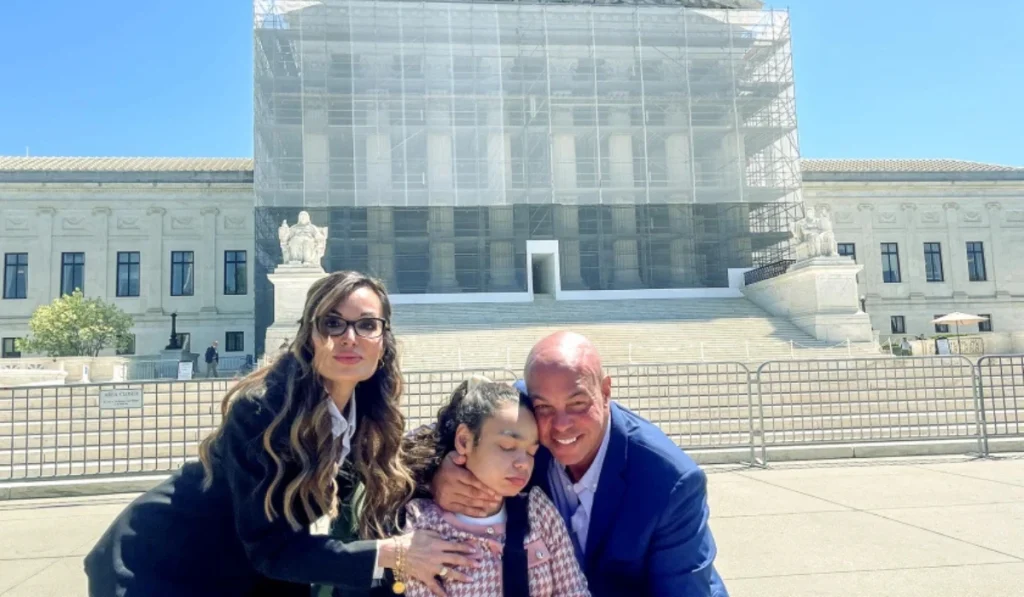In New York, where diverse backgrounds converge and dreams take flight, a robust K-12 education system isn’t just an aspiration; it’s the very bedrock of our collective progress. That’s why the recent decision by the Trump administration to freeze $6.8 billion in federal K-12 funding has sent ripples of concern, not just through our vibrant New York communities, but across the nation. And strikingly, this concern has found a voice in an unexpected chorus: ten Republican U.S. senators, including heavyweights like Shelley Moore Capito and Mitch McConnell, who are now urging President Trump to reverse this potentially devastating course.
Their plea is a testament to the fact that supporting our children’s education should transcend partisan divides. These are not funds for some fleeting, politically charged initiative. These are dollars earmarked for programs with “longstanding bipartisan support,” as the senators themselves pointed out in their letter to the Office of Management and Budget (OMB). We’re talking about essential resources that flow directly to states and local school districts, empowering them to tailor programs that best serve their unique student populations.
In New York alone, this freeze impacts over $463 million in funding for the 2025-2026 school year, representing a significant 13% of the state’s total K-12 federal allocation. The New York State Attorney General’s office has already sued the Trump administration over this illegal impoundment, highlighting the immediate and severe repercussions. This isn’t abstract budget talk; it hits home for thousands of families. We’re seeing summer programs shuttered, denying critical academic and enrichment opportunities, not to mention midday meals, for our most vulnerable children. The New York State Education Department (NYSED) estimates that at least 65,000 low-income students could lose access to vital afterschool and summer enrichment. Think about that for a moment: 65,000 children in our state, potentially left without safe, productive spaces when school is out, and without the crucial academic boost many of these programs provide.
Furthermore, the impact on adult education and literacy services is equally alarming, with an estimated 80,000 New Yorkers potentially being cut off. In a city like New York, where nearly half of public school students speak a language other than English at home, this freeze directly threatens essential English language instruction and literacy services. The implications are clear: without these funds, districts are left scrambling, forced to potentially break contracts, scale back vital support for English learners, and even face “large scale and unplanned layoffs” at the state level, as warned by NYSED.
The administration’s rationale, citing an “ongoing programmatic review” and raising objections to grant uses for immigrant students and those involving LGBT themes, misses the fundamental point. Federal education funding, often disbursed through programs like Title I of the Every Student Succeeds Act (ESSA) and the Individuals with Disabilities Education Act (IDEA), is designed to uplift our most at-risk students. Title I, for instance, provides critical resources to schools with high numbers of low-income students, aiming to close achievement gaps. These funds support everything from after-school programs and summer learning to professional development for teachers, ensuring they have the skills to serve diverse classrooms.
The Republican senators challenging this freeze understand that these funds are not about promoting a specific agenda, but about providing foundational support that allows states and local communities to address their unique educational needs. As Senator Shelley Moore Capito, Chair of the Senate Appropriations Subcommittee on Labor, Health and Human Services, Education, and Related Agencies, aptly stated, “This funding goes directly to states and local school districts, where local leaders decide how this funding is spent, because as we know, local communities know how to best serve students and families.” It’s about empowering local control, a principle often championed across the political spectrum.
The beauty of our federal education system, imperfect as it may be, lies in its capacity to provide a safety net and a springboard for students who need it most. To arbitrarily withhold these funds, especially when they support programs that genuinely enjoy bipartisan consensus like after-school enrichment and adult literacy, is to fundamentally undermine the very fabric of our educational progress. It sends a chilling message to parents, educators, and, most importantly, to our children: that their access to a quality education can be held hostage by political maneuvering.
We must stand united in demanding the immediate release of these funds. Our children’s future, and the strength of our communities, depend on it.





